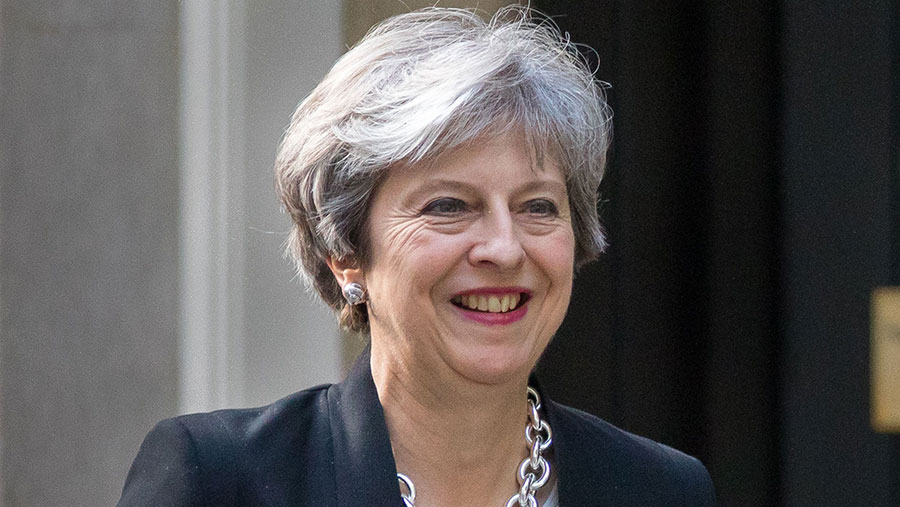Farm leaders welcome two-year Brexit transition period
 © Tom Nicholson/LNP/REX/Shutterstock
© Tom Nicholson/LNP/REX/Shutterstock Prime minister Theresa May’s quest for a transition period after the UK leaves the EU in March 2019 has been broadly welcomed by farm leaders, though the NFU says the two years suggested is the bare minimum needed.
In a speech delivered in Florence on Friday (22 September), Mrs May said an “implementation period of around two years” would be necessary to ensure a smooth transition to a new trading arrangement with the EU.
See also: EU-Canada trade deal ‘could harm British beef sector’
During this time, “access to one another’s market should continue on current terms”, she said – indicating continued free movement of people, no new tariffs and further contributions by the UK into the EU budget.
Beyond that, Mrs May said she wanted a bespoke free-trade deal between the UK and the EU – dismissing the idea of being part of the European Economic Area or a replica of the new EU-Canada free-trade deal.
Stability
NFU president Meurig Raymond said the commitment to a transitional period would provide “important stability” for farm businesses, though much more detail is still needed, especially on the planned new registration system for overseas workers.
“Farmers and growers are becoming increasingly alarmed at the prospect of a ‘no deal’ departure from the EU.
“The resulting disruption to trade, access to labour and business stability would pose a fundamental threat to the viability of many of their businesses.
“The implementation period that the prime minister spoke of will be crucial if we are to reach a Brexit settlement that backs British farming.
“We believe at least two years is needed to ensure a smooth Brexit, while also agreeing a future relationship between the EU and UK which recognises their mutual importance in terms of trade.”
Mr Raymond said he was pleased to hear there is no intention to impose tariffs where none exist, which the NFU takes as a strong commitment to securing a free-trade deal with the EU for the longer term.
What else people said about Theresa May’s speech
“We welcome a transition period as this would provide stability. However, we also believe it is important the UK and EU take steps to address ongoing concerns over access to skilled and unskilled EU labour, and subsidies for UK farmers once this period ends. These represent key areas of concern for the UK dairy industry.” Judith Bryans, chief executive, Dairy UK
“It is vital free and frictionless trade in agri-food products is maintained during this [transition] period to help farmers plan for the future outside of the EU. The transition is also critical to ensure a new policy to support farming and the environment in the long-term can be developed and tested fully, which will inevitably take time.” Ross Murray, president, Country Land and Business Association
“Despite Theresa May’s commitment to no physical infrastructure on the Irish border, she didn’t acknowledge the serious compromises the UK will have to make on its trading ambitions with third countries for the EU to agree to this. Irish and EU agri-food exports cannot be undermined by an increase in low-cost food imports into the UK market.” Joe Healy, president, Irish Farmers’ Association
“There are only 18 months left on the Brexit clock and we are edging ever closer to a cliff edge if negotiations fail. It really is make or break time for British businesses, who are not feeling confident about investing or expansion while the UK’s future relationship with the EU after 30 March 2019 remains unclear,” Mike Cherry, national chairman, Federation of Small Businesses
“How disappointing that [Mrs May] has rolled over. If you want to convey strong leadership and guts, you don’t try and please everyone, and you certainly do not show your full hand. You fight every inch of the way to get the very best deal for your country. Mrs May has left the UK with few, if any bargaining tools.” Carola Godman Irvine, farmer, West Sussex
